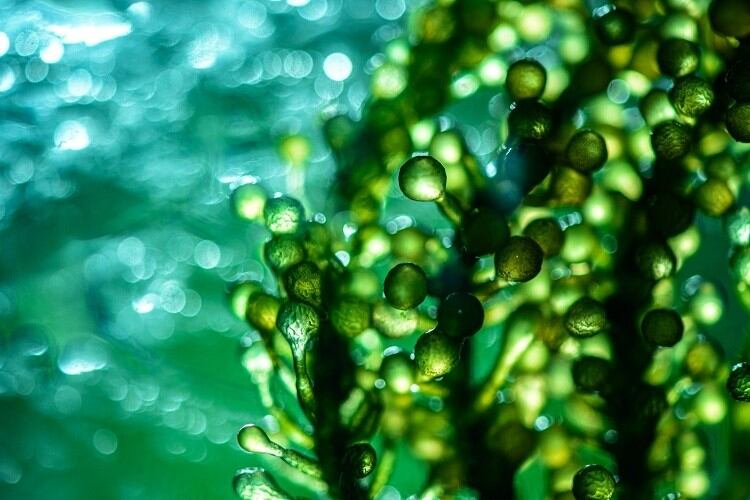Led by the Nanyang Technological University, Singapore, the scientists say they have produced an edible oil with ‘superior properties’ to those found in palm oil.
The microalgal oil contains more polyunsaturated fatty acids than palm, which can help reduce ‘bad’ cholesterol levels in blood and lower a person’s risk of heart disease and stroke. The microalgae-produced oil developed in collaboration with scientists from the University of Malaya, Malaysia, also contains fewer saturated fatty acids, which have been linked to stroke and related conditions, the researchers claim.
To produce the oils, pyruvic acid - an organic acid that occurs in all living cells - was added to a solution with the algae Chromochloris zofingiensis and exposed to ultraviolet light to stimulate photosynthesis.
After 14 days, the microalgae is then washed, dried, and treated with methanol to break down the bonds between the oils and the algae protein. The oils can then be extracted.
The results of the study were published in the peer-reviewed academic publication Journal of Applied Phycology.
The NTU team has separately developed cost-cutting innovation to replace the microalgae culture medium with fermented soybean residues while improving the yield of microalgae biomass. The team has also developed green processing technology to extract efficiently microalgae-derived plant oils.
To produce enough plant-based oil to manufacture a store-bought chocolate bar that weighs 100 grams, 160 grams of algae would be required, the researchers revealed.
More sustainable than palm?
Palm oil is the world’s most widely consumed vegetable oil, featuring in around half of all consumer products. Farmers produced 77 million tonnes of palm oil for the global market in 2018, and that is expected to grow to 107.6 million tonnes by 2024, according to estimates from the International Institute for Sustainable Development.
However, the rapid expansion of oil palm plantations is has been linked to deforestation in tropical forests.
The researchers said that their algae oil innovation presents a ‘possible alternative’ to the cultivation of palm trees for oil.
Professor William Chen, Director of NTU’s Food Science and Technology (FST) Programme, who led the project, said 'developing these plant-based oils from algae’ is part of the researchers efforts to ‘find successful ways to tackle problems in the agri-food-tech chain’, especially ‘those that have an adverse impact on the environment’.
“Uncovering this as a potential human food source is an opportunity to lessen the impact the food supply chain has on our planet,” Prof. Chen added.
Algae: a three-pronged approach to climate
Besides offering an alternative for plant-based oils or fat, the NTU-developed technique also has the potential to help cut down on greenhouse gas emissions and food waste.
The scientists suggested that when scaled up, the production of the plant-based oils with natural sunlight instead of using ultraviolet lights could help remove carbon dioxide from the atmosphere by converting it to biomass and oxygen via photosynthesis. As the microalgae grows, it converts carbon dioxide to biomass at ‘relatively fast' rates.
In a separate study, the scientists at NTU’s Food Science and Technology programme have also developed a process to produce the key reaction ingredient needed to cultivate the microalgae oil, pyruvic acid. This is done by fermenting organic waste products, such as soybean residues and fruit peels, which would not only reduce production costs, but help cut down on food waste.
“Our solution is a three-pronged approach to solving three pressing issues. We are capitalising on the concept of establishing a circular economy, finding uses for would-be waste products and re-injecting them into the food chain. In this case, we rely on one of nature’s key processes, fermentation, to convert that organic matter into nutrient-rich solutions, which could be used to cultivate algae, which not only reduces our reliance on palm oil, but keeps carbon out of the atmosphere,” Prof. Chen said.
The next step for the scientists is to optimise extraction and improve yield and quality. The research team revealed it has received interest from ‘several food and beverage partners’ and could explore scaling up their operations within two years.
Due to the oils’ properties, the NTU team will be exploring adding them to plant-based meats to improve their texture and nutritional properties. They also hope to explore pharmaceutical and cosmetic uses in products such as topical creams, lipsticks, and more.
Source
‘Screening and effect evaluation of chemical inducers for enhancing astaxanthin and lipid production in mixotrophic Chromochloris zofingiensis’
Journal of Applied Phycology
DOI: 10.1007/s10811-021-02618-6
Authors: Jun-Hui Chen, Dong Wei, Phaik-Eem Lim, Jun Xie & Wei Ning Chen

